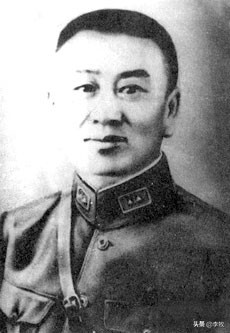In 1946, through the relationship between Zhang Yanfo, a fellow hunan compatriot and senior agent of the military command, Li Jue, a lieutenant general of the Nationalist army who had befriended Zhang Xueliang, and Zhang Xueliang, who was under house arrest in Chongqing. Borrowing zhang Yanfo's supervision gap, Zhang Xueliang secretly instructed Li Jue: "Give Fang Bo a message and let him do a good job." Liu Duoquan (1897-1985), also known as Fangbo, was a native of Fengcheng, Liaoning, and was the highest general in the Kuomintang army. This person graduated from the Baoding Military Academy at the age of 26, became the deputy captain of Zhang Xueliang's guard at the age of 28, and was promoted to division commander at the age of 31. In the Xi'an Incident, Liu Duoquan was the commander-in-chief of Jiang's capture. After that, Liu Fangbo threw himself into the anti-Japanese battlefield, and in the later stages of the civil war, his family went to Hong Kong, and on the eve of the founding of New China, he electrified an uprising in Hong Kong. Return to Beijing. After the founding of the People's Republic of China, he served as a counselor of the Government Council, director of the Liaoning Provincial Department of Communications, and vice chairman of the Liaoning Provincial Committee of the Chinese People's Political Consultative Conference, and died of illness in Beijing in 1985. Li Jue (1900-1987), who later rebelled against Chen Mingren in Hunan, became a member of the Standing Committee of the National Committee of the Chinese People's Political Consultative Conference after the founding of the People's Republic of China. Zhang Yanfo (1901-1971), who also accompanied Chen Mingren's uprising, due to his military command background and excessive blood debts, was arrested and died of illness in 1971 in a war criminals reform center, unable to wait for amnesty. In 1983, he was rehabilitated as an insurgent.
